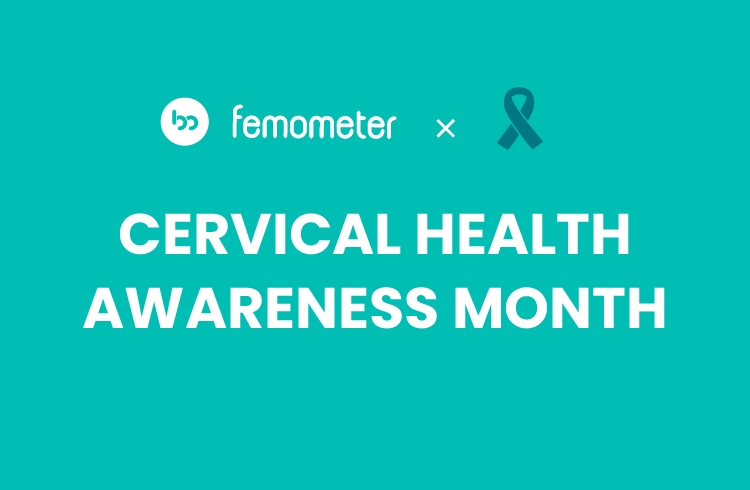Embarking on the journey to conceive after saying farewell to birth control and pregnancy after 30 can sometimes be a challenging adventure. Many couples encounter this so rest assured you're not alone. Transitioning from contraceptive methods to actively trying to conceive is a significant milestone, one that demands patience and understanding. Whether you've been on birth control pills, patches, or other forms, the shift signals a pivotal moment in your family planning. In this blog, we'll delve into some valuable tips, offering insights and guidance to ensure a successful and informed start on your fertility journey.
When to Start Your TTC Journey After Birth Control?

Deciding when to start trying for a baby after ditching birth control is a personal choice. It's not just about the physical stuff; it's also about feeling ready in your heart and mind. Make sure you and your partner are emotionally prepared for the exciting journey of trying to conceive. Taking this time to sync up your emotions with your baby-making goals is like building a strong foundation. So, whenever you both feel mentally ready to dive into the adventure of becoming parents, that's the perfect time to start trying!
How Soon After Stopping the Pill or Other Birth Control Will I Ovulate?
1. Birth control pills: Typically, ovulation may resume within 1 to 3 months after stopping the pill.
2. Intrauterine device (IUD): Ovulation often returns within 1 month after IUD removal.
3. Implant: Ovulation can resume as early as the first month after removing the implant.
4. Birth control patch: It's common for ovulation to return within 1 to 3 months after discontinuing the birth control patch.
5. Vaginal ring: Ovulation may resume within 1 to 3 months after discontinuing the vaginal ring.
6. Injectable birth control (Depo-Provera): It may take 10 months or more for ovulation to return after stopping Depo-Provera.
7. Tubes removed surgery: Getting pregnant naturally after tubes removed surgery is rare; assisted reproductive technologies like IVF might be needed for support.
Risks of Getting Pregnant After Birth Control
Embarking on the baby-making journey post-birth control brings a few considerations. Initially, there's a higher chance of miscarriage, but don't worry, this tends to decrease over time. Understanding these aspects helps you approach the exciting path of conception with more confidence.
The exact duration can vary among individuals, but generally, with each passing month, the risk tends to decline. It's important to note that individual factors, health conditions, and lifestyle choices can influence this timeline. Nonetheless, many couples find that as they move further along in their post-birth control journey, the risks associated with early pregnancy complications gradually diminish.
How to Have a Auccessful Pregnancy?

Embarking on the path to pregnancy after stopping birth control involves taking some thoughtful steps to boost your chances of success.
1. Stop Birth Control Right Away
First things first, stop using birth control methods right away. Let your body naturally adjust to the changes in hormones, setting the stage for conception.
2. Track Your Ovulation
Keep an eye on your ovulation to know the best time to try. There are different ways to do this, like ovulation predictor kits or tracking changes in your basal body temperature and cervical mucus. Understanding your menstrual cycle better can make your attempts more precise.
3. Have a Health Check
Both you and your partner should get a health check. This is to catch and fix any possible issues that could affect your fertility. It's like making sure everything is in good shape for the baby-making journey.
3. Have a Healthy Lifestyle
Living a healthy life is a big deal for both of you. Make sure you're getting enough sleep, quit smoking, and go easy on the drinking. Eating well is important too—think fruits, veggies, and all the good stuff.
4. If You Are on Any Medications, Consult Your Doctor
If either of you is on medication, check with your doctor before trying to get pregnant. They can make sure everything's safe and sound for baby-making.

5. Stay in a Good Mood
And don't forget to chill out a bit. Stress can mess with fertility, so find ways to relax. Whether it's a good book, a walk in the park, or just doing something you love, keeping the stress levels down is good for baby-making.
Remember, everyone's baby-making journey is different. These tips are a good starting point, but your doctor knows you best. They can give you personalized advice to make your path to pregnancy smoother.
This article is the original creation of Femometer. All rights reserved by Femometer Inc. To reproduce, distribute, or reference the content, please reach out to us in advance to prevent any potential legal issues. Copyright © Femometer Inc.










